This is how ‘development’ works – from a low-impact perspective & as reported in the corporate press

This is how ‘development’ works. NB: you can substitute any rich country for Germany, and any poor country for Zambia. In the boardroom of a global corporation in Germany, the following conversation takes place:
‘We have to maximise returns to our shareholders, and wages in Germany are too high to do that. We should relocate our mining / foundry operations to Zambia, where we can pay much, much lower wages.’
‘Yes, and we don’t have to bother with unions, health and safety or environmental regulations in Zambia either.’
‘And we have friends in government who will allocate a foreign aid loan to the Zambian government to appropriate and clear land for a mine and smelting plant.’
And so Zambia receives a loan, land is compulsorily purchased, and a mining and smelting operation is set up, along with roads and other infrastructure. Similar infrastructure in Germany is abandoned.
There are several thousand people living in smallholdings on the land, but they are removed – a couple of hundred of them are offered employment in the mine or smelting plant, but most of them leave to try to set up home in Lusaka.
The plant starts operating, without unions, paying one or two dollars a day to part-time or casual workers who have no job security. The lack of environmental regulations means that toxic waste is dumped onto the land and into the rivers, and pollutants are released into the atmosphere.
The result, from a low-impact perspective:
- the livelihoods of several thousand Zambian smallholders, whose families have lived on the same land for generations, have been destroyed
- the local environment in Zambia is heavily contaminated
- the metals produced are transported back to Europe, causing more pollution
- the health of thousands of Zambians living close to the plant is damaged
- the slums around Lusaka increase in size
- a couple of hundred people lose their land and have to work in dangerous, unhealthy conditions for pitifully low wages, without unions or health and safety regulations
- Zambia has to pay debt and interest that it can ill-afford to an already rich country
- more wealth is concentrated in the hands of the few who already have it
- hundreds of skilled workers in Germany now unemployed, working in call centres or re-training to work in marketing
The result, as reported in the corporate press:
- hundreds of jobs created in Zambia
- generous foreign aid provided to a poor country to help it to develop
- lower prices for metals in Western countries
- economic growth stimulated
- good news for investors as profits increase
- cleaner environment in Germany – because as we know, as a country becomes richer, the environment becomes cleaner
The views expressed in our blog are those of the author and not necessarily lowimpact.org's
2 Comments
-
1John Harrison May 19th, 2015
You say the corporate press as if it’s a conspiracy but I don’t think it’s that. The great days of the press fearlessly reporting the truth are over. The growth of the net where anyone can report and opinionate, has brought them down financially. Now they are reduced to rehashing feeds and press releases, scared of legal battles that can break them win or lose.
My experience is that reporters have so little time to fact check and verify, that their ‘facts’ are gleaned from the top three results of a search on Google. Reporters like John Pilger are pushed back in favour of the latest celeb gossip and those who would have been carrying his torch now work managing the news and image for large companies who can pay them 10 times what the news outlets can afford.
Some of the multi-nationals can and will crush those report unfavourably on them. When you’re small and hardly have an audience, you’re fairly safe but if you’re big enough to be noticed by them then you find yourself at risk. With a legal system that costs so much, even if you’re 100% right you’re going to think twice about what you say.
Even if you don’t bow to their threats then they can just get you off the net. Dear XYZ internet server company, take this down or we’ll bust you with our legal team.
-
2Dave Darby May 20th, 2015
Hi John – definitely not suggesting a conspiracy. The press is just corporate, with an agenda, and that’s how they report around ‘development’. The emphasis wasn’t the press, but development. Western governments report it the same way.




 Do you think you live in a democracy?
Do you think you live in a democracy?
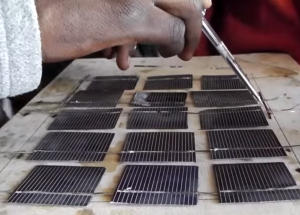 How you can help cottage industries provide solar in African villages (not for cheap electricity – just for electricity)
How you can help cottage industries provide solar in African villages (not for cheap electricity – just for electricity)
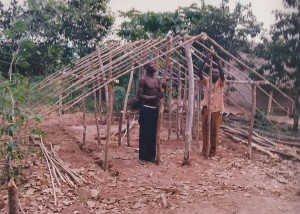 More details of the ujamaa collective village system in Tanzania (from first-hand experience)
More details of the ujamaa collective village system in Tanzania (from first-hand experience)
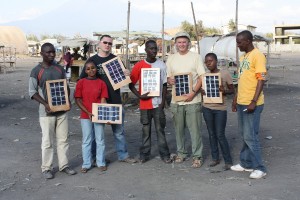 Self-build solar lighting for Africa
Self-build solar lighting for Africa
 La Via Campesina ‘peasants’ movement inaugurated in the UK
La Via Campesina ‘peasants’ movement inaugurated in the UK
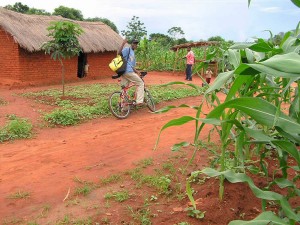 FoWO (Federation of WWOOF Organisations) is born
FoWO (Federation of WWOOF Organisations) is born
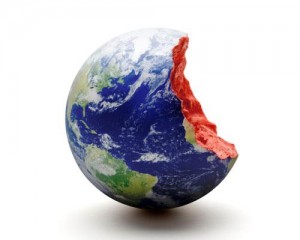 BBC: ‘Only by increasing productivity can we improve the quality of our lives’. Do you agree?
BBC: ‘Only by increasing productivity can we improve the quality of our lives’. Do you agree?
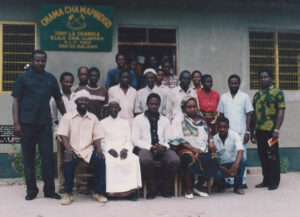 How Julius Nyerere’s Ujamaa idea could form the basis of a new global political system
How Julius Nyerere’s Ujamaa idea could form the basis of a new global political system
 The future will be handmade? The prospects for craft skills in ‘developing’ countries
The future will be handmade? The prospects for craft skills in ‘developing’ countries
 Invitation to join us at Breaking the Frame gathering in Derbyshire in July
Invitation to join us at Breaking the Frame gathering in Derbyshire in July
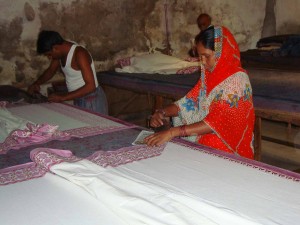 Support the art of blockprinting fabrics – watch this fantastic video of how it’s done and we’re sure you’ll want to
Support the art of blockprinting fabrics – watch this fantastic video of how it’s done and we’re sure you’ll want to
 Reimagining progress: what we can learn about ‘lean thinking’ from indigenous communities
Reimagining progress: what we can learn about ‘lean thinking’ from indigenous communities
 Philosophy
Philosophy
 The 'democracy problem'
The 'democracy problem'


